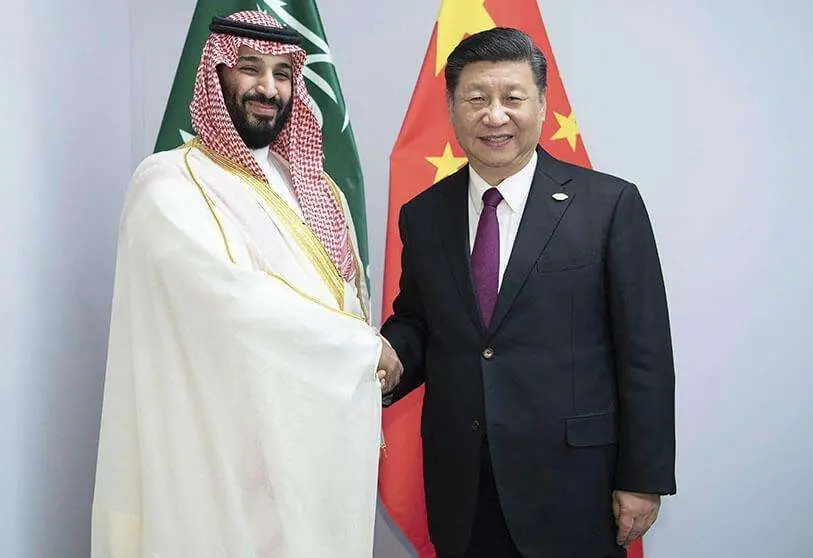Riyadh raises relations with Beijing to highest level

Taking advantage of Xi Jinping's re-election as head of the Communist Party of China, Saudi Arabia is sending a strong message to the United States. Its relations with Beijing will be at the same high level as those with the United States, or even higher if the White House continues its process of withdrawal from the region.
The Chinese leader will visit the Gulf kingdom in the near future, as confirmed by Saudi officials this week. According to government sources quoted by the Emirati digital newspaper Al-Arab, three separate summits will be held between the two countries on the occasion of Xi Jinping's visit. The idea is to give Beijing the same treatment that the United States received during the visit of its President Joe Biden during his last tour of the Middle East.

By holding these three summits, Saudi Arabia is demonstrating that its alternatives to the US are clear and strong. Riyadh's message is clear. Either the US commits to more decisive policies in the Middle East, or its role will be replaced by its biggest geopolitical rival at the moment. The goodwill between the Gulf axis and China is not recent news. Arab governments enjoy an ambiguous position between the two great powers that they use to exploit every opportunity.
Not only governments, but public opinion in the Gulf is already showing a strong interest in strengthening relations with the Asian giant and favouring them over the US. According to polls published by the Washington Institute. In August 2022, 60 per cent of respondents were in favour (26 per cent strongly in favour and 34 per cent in favour) of the premise that "Our country cannot count on the United States today, so we should look more to Russia or China as partners". This was 9 points higher than in November 2021 and 3 points higher than in March 2022, at the dawn of Russia's invasion of Ukraine.

In Saudi Arabia, the population's response to the same statement was 49% (22% strongly in favour, 27% in favour) in November 2021; 55% (26% MF, 29% F) in March 2022 and finally 59% in August 2022. A much more pronounced progression than that of the United Arab Emirates. 20 points more, to be precise.
It should also be recalled that the latest diplomatic clash between the United States and China over the visit of the Speaker of the House of Representatives, Nancy Pelosi, was not well received in the Gulf. The United Arab Emirates, Saudi Arabia's closest ally in the region, took the opportunity to recall its support for China's unification plan with Taiwan and condemned the bellicose and provocative tone of Pelosi's visit to the island of Formosa.
It was Saudi Arabia's foreign minister, Prince Faisal bin Farhan, who broke the news. A few days after the grand congress of the CPC, Faisal bin Farhan declared that Xi Jinping's visit would be the occasion to consecrate a "historic and strong relationship. Bin Farhan said that preparations are being finalised for the meeting to be held successfully on a date yet to be announced.

With tension building between the US and Saudi Arabia following OPEC's refusal to raise oil production levels, the rift between the two players can be expected to continue to grow. Saudi Arabia could take forceful actions in the future that would bring it closer to India and China, opening up the fields of cooperation on the military side, an area now mainly dominated by the US, with whom it has important control and surveillance programmes in the Gulf Sea.
Saudi Arabia wants to maintain its independence from the US as much as possible, and the interventions of its leaders make it clear that they will not give in to Washington. Faisal bin Farhan told US broadcaster CNN in an interview that if Riyadh felt it was right, it would acquire Chinese weapons systems, in particular missiles for air defence, as it did in 2014 with DF-21 medium-range missiles.









